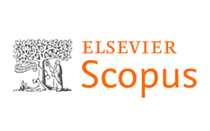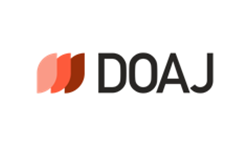БАГАТОСТОРОННЄ РЕГУЛЮВАННЯ ПРОЦЕСІВ ЦИФРОВІЗАЦІЇ
Ключові слова:
Багатостороннє регулювання, світова економіка, цифровізація, цифрова економіка, інновації, інформаційно-комунікаційні технології, міжнародні організації.Анотація
Обґрунтовано важливість багатостороннього регулювання процесів цифровізації. Проаналізовано статус, наслідки та прогалини лібералізації міжнародної торгівлі ключових продуктів ІКТ завдяки Угодам про інформаційні технології в рамках СОТ. Сумарний економічний ефект обох Угод ІТА визначено в розмірі приблизно 3 трлн дол. США на рік. Проте ці угоди охоплюють менше половини країн-членів СОТ. Виявлено, що міжнародні ініціативи регулювання цифровізації переважно мають добровільний характер, зосереджені на окремих аспектах цифровізації та охоплюють обмежену кількість країн. Аргументовано, що необхідність комплексного багатостороннього регулювання цифровізації полягає в можливих проблемах та ризиках глобального масштабу. Сформовано пріоритети багатостороннього регулювання цифровізації: узгодження базових визначень цифрових процесів, умов доступу до даних, концепції цифрових даних для глобального суспільного блага, форм управління даними, прав і принципів щодо цифрових даних, стандартизація даних, міжнародна співпраця з управління платформами. Наголошено на комплексному і збалансованому підході для підтримки інклюзивного та сталого розвитку світової економіки та можливості створення міжнародного органу з управління різними аспектами цифровізації.
Класифікація за JEL: F53, O19, O30, O40.
Посилання
Africa (2023). AU’s Malabo Convention set to enter force after nine years. May 19. https://dataprotection.africa/malabo-convention-set-to-enter-force/.
Ahmed U. & Aldonas G. (2015). Addressing barriers to digital trade. – Geneva: International Centre for Trade and Sustainable Development (ICTSD) and World Economic Forum. www.e15initiative.org/www.e15initiative.org/.
ASEAN (2015). Agreement on Electronic Commerce. http://agreement.asean.org/media/download/20190306035048.pdf.
ASEAN (2023). Digital Masterplan 2025. https://asean.org/storage/ASEANDigital-Masterplan-2025.pdf.
Banga K. & Velde D.W. (2020). COVID-19 Disruption of the Digital Economy; Evidence From Low Middle-Income Countries. Digital Pathways at Oxford Paper Series, no. 7. Oxford, United Kingdom. https://pathwayscommission.bsg.ox.ac.uk/sites/default/files/2021-01/covid-19_and_disruption_of_the_digital_economy_28jan21.pdf.
CBPR (2023). Participation in the APEC Cross-Border Privacy Rules (CBPR) System affords Asia-Pacific Economic Cooperation members a unique opportunity to work, available at http://cbprs.org/government/.
COE (2018). Modernised Convention for the Protection of Individuals with Regard to the Processing of Personal Data Consolidated text, available at https://search.coe.int/cm/Pages/result_details.aspx?ObjectId=09000016807c65bf.
COE (2023). Details of Treaty No.108, Convention for the Protection of Individuals with regard to Automatic Processing of Personal Data, available at https://www.coe.int/en/web/conventions/full-list/-/conventions/treaty/108.
Coyle D., Diepeveen S., Wdowin J., Kay L. & Tennison J. (2020). The value of data – Policy implications. The Bennett Institute for Public Policy, Cambridge and the Open Data Institute. https://www.bennettinstitute.cam.ac.uk/ publications/valuedata-policy-implications/.
De La Chapelle B. & Porciuncula L. (2021). We Need to Talk About Data: Framing the Debate Around the Free Flow of Data and Data Sovereignty. Internet & Jurisdiction Policy Network (I&JPN), Paris.https://www.internetjurisdiction.net/news/aboutdata-report.
Digital Future Society (2019). Toward better data governance for all: Data ethics and privacy in the digital era. Digital Future Society, Barcelona, July. https://digitalfuturesociety.com/app/uploads/2019/08/060819_Toward_better_data_governance_for_all_dfs_mwcapital_DIGITAL.pdf.
ECLAC (2020). Digital Agenda for Latin America and the Caribbean (eLAC2022). LC/CMSI.7/4. Seventh Ministerial Conference on the Information Society in Latin America and the Caribbean, 23-26 November, Santiago. https://conferenciaelac.cepal.org/7/sites/elac2020-2/files/20-00902_cmsi.7_digital_agenda_elac2022.pdf.
Ezell S. J. (2012). The Benefits of ITA Expansion for Developing Countries. Washington, D.C.: The Information Technology and Innovation Foundation (ITIF). http://www2.itif.org/2012-benefits-ita-developing-countries.pdf.
Gagnon-Turcotte S., Sculthorp M. & Coutts S. (2021). Digital data partnerships: building the foundations for collaborative data governance in the public interest. Open North, Montreal. https://assets.ctfassets.net/e4wa7sgik5wa/6mV2HLHbhKbU2sgtXSTMQX/da0ede46238b1809d60b5ba65732fb2b/Digital_Data_Partnerships_Report-EN.pdf.
Girard M. (2020). Standards for Digital Cooperation. CIGI Papers, No. 237, Centre for International Governance Innovation, Waterloo, ON. https://www.cigionline.org/publications/standards-digitalcooperation/.
Goos M., Manning A. & Salomons A. (2014). Explaining Job Polarization: Routine-Biased Technological Change and Offshoring. American Economic Review. 104, 2509–2526. DOI: 10.1257/aer.104.8.2509.
GovLab (2023). Data Collaboratives Explorer. https://datacollaboratives.org/ explorer.html?#data-pooling.
Gozgor G. & Lau C.K.M. (2021). Economic Effects of COVID-19 Related Uncertainty Shocks / Frontiers in Public Health. 9:760619. DOI:10.3389/fpubh.2021.760619.
Henn C. & Gnutzmann-Mkrtchyan A. (2015). The Layers of the IT Agreement’s Trade Impact. WTO Working Paper ERSD-2015-01, Geneva: WTO. https://www.wto.org/english/res_e/reser_e/ersd201501_e.pdf.
Hurst D. (2019). Japan Calls for Global Consensus on Data Governance. The Diplomat, 2 February. https://thediplomat.com/2019/02/japan-calls-forglobal-consensus-on-data-governance/.
IGF (2021). The IRPC Charter of Human Rights & Principles for the Internet at 10: Achievements, challenges and what’s next? https://www.intgovforum.org/en/content/the-irpc-charter-of-human-rights-principles-for-the-internet-at-10-achievements-challenges.
ITU (2018). International Telecommunication Union. Measuring the Information Society Report 2018. Geneva: ITU. https://www.itu.int/dms_pub/itud/opb/ind/D-IND-ICTOI-2018-SUM-PDF-E.pdf.
Kanth D. R. (2019). India boycotts «Osaka Track» at G20 summit. Mint, 30 June. https://www.livemint.com/news/world/india-boycotts-osaka-track-at-g20-summit-1561897592466.html.
Katz R. (2017). Social and Economic Impact of Digital Transformation on the Economy. GSR-17 Discussion paper. Geneva: ITU. https://www.itu.int/en/ITU-D/Conferences/GSR/Documents/GSR2017/Soc_Eco_impact_Digital_transformation_finalGSR.pdf.
Key Issues for Digital Transformation in the G20. Report prepared for a joint G20 German Presidency/ OECD conference. https://www.oecd.org/g20/keyissues-for-digital-transformation-in-the-g20.pdf.
Mozilla (2023). Data for Empowerment. Data Futures Lab. https://foundation.mozilla.org/en/data-futures-lab/data-for-empowerment/.
Niu F. (2022). The Role of the Digital Economy in Rebuilding and Maintaining Social Governance Mechanisms. Frontiers in Public Health 9:819727. DOI:10.3389/fpubh.2021.819727.
OECD (2007). OECD Recommendation on Cross-border Co-operation in the Enforcement of Laws Protecting Privacy.
OECD, Paris. https://www.oecd.org/sti/ieconomy/38770483.pdf.
OECD (2019). Recommendation of the Council on Artificial Intelligence. OECD/LEGAL/0449, Adopted on: 22/05/2019. OECD Legal Instruments. https://legalinstruments.oecd.org/en/instruments/OECD-LEGAL-0449.
OECD (2023). Digitalization and Productivity. https://www.oecd.org/economy/ growth/digitalisation-productivity-and-inclusiveness/.
OECD and WTO (2022). Aid For Trade At a Glance 2022: Promoting Trade, Inclusiveness And Connectivity For Sustainable Development. https://www.oecdilibrary.org/ development/aid-for-trade-at-a-glance-2022_9ce2b7ba-en.
Sturgeon T. J. (2021). Upgrading Strategies for the Digital Economy. Global Strategy Journal. 11, 34–57. DOI: 10.1002/gsj.1364
UNCTAD (2021). DIGITAL ECONOMY REPORT. Cross-border data flows and development: For whom the data flow. https://unctad.org/system/files/official-document/der2021_en.pdf
WTO (2015). 20 years of the Information Technology Agreement: Boosting trade, innovation and digital connectivity. Textbook. WTO, 96 p. https://www.wto.org/english/res_e/booksp_e/ita20years_2017_full_e.pdf
WTO (2023). Information Technology Agreement. WTO web-site. https://www.wto.org/english/tratop_e/inftec_e/inftec_e.htm
Отримано: 4 серпня 2023 р.
Рецензовано: 8 серпня 2023 р.
Рекомендовано до друку: 26 серпня 2023.
##submission.downloads##
Опубліковано
Як цитувати
Номер
Розділ
Ліцензія
Автори, які публікуються у цьому журналі, погоджуються з наступними умовами:
- Автори залишають за собою право на авторство своєї роботи та передають журналу право першої публікації цієї роботи на умовах ліцензії Creative Commons Attribution License, котра дозволяє іншим особам вільно розповсюджувати опубліковану роботу з обов'язковим посиланням на авторів оригінальної роботи та першу публікацію роботи у цьому журналі.
- Автори мають право укладати самостійні додаткові угоди щодо неексклюзивного розповсюдження роботи у тому вигляді, в якому вона була опублікована цим журналом (наприклад, розміщувати роботу в електронному сховищі установи або публікувати у складі монографії), за умови збереження посилання на першу публікацію роботи у цьому журналі.
- Політика журналу дозволяє і заохочує розміщення авторами в мережі Інтернет (наприклад, у сховищах установ або на особистих веб-сайтах) рукопису роботи, як до подання цього рукопису до редакції, так і під час його редакційного опрацювання, оскільки це сприяє виникненню продуктивної наукової дискусії та позитивно позначається на оперативності та динаміці цитування опублікованої роботи (див. The Effect of Open Access).








